2019-04-26
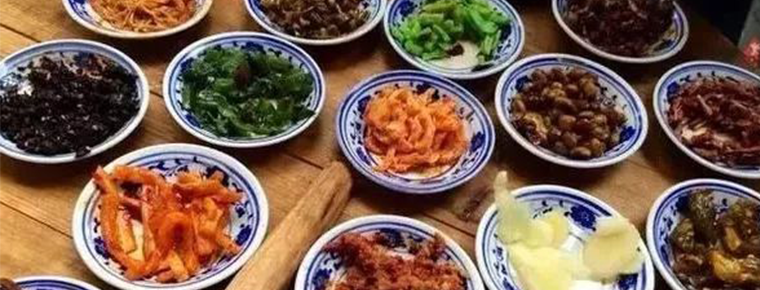
- By ChinaWiki.net
- Chinese Edition
- 2019-05-06
Making Techniques of Pickled Vegetables
Making pickles, the traditional skills of Beijing Liubiju Food Co., Ltd., is one of the national intangible cultural heritage.
Liubiju Sauce Garden is located at No. 3 Food Shop Street in Qianmen. The "Liubiju" gold-lettered plaque hanging in the shop is said to have come from the hand of Yan Song, Prime Minister of the Ming Dynasty, and has now become a rare treasure. The meaning of "six must reside" is: millet, rice, Xue, incandescence, ceramics, fire and fragrance. "Six necessities" can be explained in terms of production and operation technology as follows: materials must be complete, materials must be sufficient, production process must be clean, temperature must be properly mastered, equipment must be excellent, spring water must be pure fragrance. Its pickles are famous for their rich sauce flavor, fresh sweet crispness and tenderness, which have been well-known in literati's notes since the Qing Dynasty.
In 2008, the technology of pickle production was approved by the State Council of the People's Republic of China and listed in the second batch of national intangible cultural heritage list. Heritage number: _-158.
historical origin
Making techniques of pickles began in Jiajing period of Ming Dynasty. It was named for its "six necessities" management concept, which emphasized product quality. Liubiju was founded by Zhao's three brothers in Linfen County, Shanxi Province.
Liubijudian is located outside the front gate of the big fence. It has been more than 500 years since the Ming Dynasty began its business. Starting with the sale of Xiangling liquor, which is famous all over the world, the business is booming. During the Jiajing period, the hotel was well-known in Beijing. Yan Song, the prime minister, was addicted to wine. When he heard that the wine in this shop was different, he went to have a small test. After tasting the wine, he really felt that the taste of the wine was extraordinary. From then on, he often patronized it. As people get familiar with each other, the restaurant asks Yan Song to give them a name. Yan Song wrote down the three strong words of "six must live" according to the ancient wine-making tips contained in the "Ritual Records Monthly Decree": "rice must be Qi, tillers must be clean, hot water springs must be fragrant, pottery must be quantity, fire must be obtained". The name "six must reside" is derived from this.
During the reign of Emperor Qianlong of Qing Dynasty, Liubiju Restaurant changed into a pickle garden, which gained a better reputation because of its bright color, strong sauce taste, crispness, tenderness and fragrance, moderate saltiness and sweetness, and relieving greasy food. There are more than 60 kinds of traditional pickles with unique flavor, among which Babao dish, pickled cucumber, mayonnaise and sweet noodle sauce are the most famous.
Liubiju has gone through three stages of development, changing its owner without changing its name. The first stage is Guo Liubiju, which began in the middle of Ming Dynasty. In the eleventh year of the Republic of China (1922), Liubiju applied for a supplementary license. At that time, a supplementary contract was issued by the Jingshi Oil, Wine, Vinegar and Salt Chamber of Commerce. It can be seen from the supplementary contract that Liubiju business existed nine years ago in Jiajing, Ming Dynasty.
The second stage is Liubiju, a joint stock company of three surnames. It began in the late Ming and early Qing Dynasty. The owner of Liubiju, Yaomiao Township, Linfen, Shanxi Province, found a two-year house sale deed of Daoguang (1832). The deed said that Guo's sole management of Liubiju was not satisfied, so he absorbed Zhaobi and Yuanwei's shares, and the three families joined in Liubiju.
The third stage was Liu Biju, surnamed Zhao, which began in Daoguang two years (1832).
Liubiju's own pickles were selected as Imperial Palace products in Qing Dynasty. When the Eight-Power Allied Forces invaded Beijing, they torched Liubiju and reopened it the following year. In 1935, the shop's pickles won an award at the Qingdao "Exhibition of Products Produced along the Railway" and were sold overseas. In 1985, the new plant was built in Nanyuan.
Process characteristics
Liubiju pickles are delicate in material selection and strict in production. Sauce raw materials have a fixed origin, such as the homemade yellow sauce and sweet noodle sauce of Liubiju, whose soybeans are selected from Majuqiao, Fengrun County, Hebei Province, and Yongle Shop, Tongzhou. White flour is selected from Lianshui County, western Beijing, which is the first-class wheat. Liubiju is processed into fine white flour by itself, which ensures the quality of Liubiju sauce.
The traditional production techniques of Liubiju pickles are well-known for their unique material selection, complex production and rigorous craftsmanship. They have been handed down from generation to generation through oral instruction for a long time. Its production and processing pay attention to quality, business management is faithful, products are rich and diverse, and packaging is novel and unique.
Inheritance and protection
Inheritance value
Liubiju Sauce Garden is an old Chinese brand. Pickled sauce is not only a necessary dish for many families in Beijing, but also one of the famous dishes at the state banquet. It has high historical and cultural value, nutritional and health value and brand value.
Liubiju has a series of rich and profound corporate culture concepts. It adheres to the traditional "six necessities" production and management concept, pays attention to "rice must be uniform, tillering must be solid, incandescent must be clean, water springs must be fragrant, pottery must be good, fire must be ready". That is, the materials must be complete, the cutting must be sufficient, the production process must be clean, water must be pure, equipment must be good, fire must be appropriate.
Inheritance status
With the change of social life, pickle production technology also encounters difficulties in inheritance and development, such as the confusion of market space, the increase of production costs and so on.
Inheriting characters
Yang Yinxi, selected as the representative successor of the third batch of national intangible cultural heritage projects, declared by Beijing Liubiju Food Co., Ltd. Declared items: pickle production skills (six must reside pickle production skills).
protective measures
Rehabilitation of production of traditional products of Liubiju
In 2009, Liubiju resumed the production of traditional basket pickles, natural sun-dried sweet paste and mayonnaise. The traditional production process was adopted in the production of products, while the sanitary and safe environmental protection materials were used in the outer packaging, which not only kept the traditional flavor of products, but also met the national requirements for food safety.
Pursuing the Cultural History of Liubiju
Six Biju sent people to Linfen, Shanxi in batches to find the root, visited the compilers of Linfen History, visited the descendants of Zhao's family and some old employees or their children, and got a deeper understanding of the development history of Six Biju. During this period, we collected some valuable books and photographs that recorded the history of Liubiju.
Find and solicit the original objects of Liubei residence
Liubiju collects the old objects of Liubiju from the society, and collects 87 kinds of old objects used by Liubiju before the Republic of China.
Demonstrating the immaterial culture of Liubiju
In 2009, Liubiju participated in a series of non-relics exhibitions. Participated in the Beijing Business Committee and the Old Brand Association in Tianjin, Shanghai, Hangzhou, Hong Kong and other places held "Beijing Old Brand Olympic City Tour Exhibition" series activities, Beijing Tourism Bureau held "Cultural Creative Products Exhibition" and China Spices Association held "Spices Exposition".
social influence
At the annual Party Congress and People's Congress held by the state, the Sixth Must Residence has become an indispensable role on the dining table. At the Asian Games held in Beijing and the World Women's Congress, Liubiju pickles were warmly welcomed by foreign friends. In contemporary times, the export of Liubiju's products has been expanding year by year, with footprints in more than 10 countries and regions, such as the United States and Japan. "Liubiju" and "Tianyuan" have also registered trademarks abroad in China.
In 2006, Liubiju was recognized by the Ministry of Commerce of the People's Republic of China as the first batch of old Chinese brands.
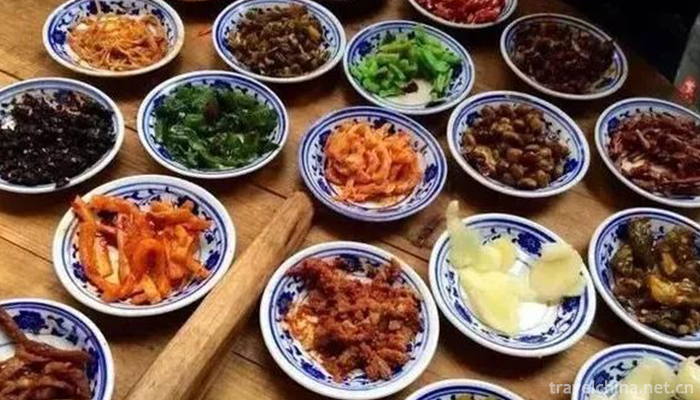
Ask a Question
Your email address will not be published.
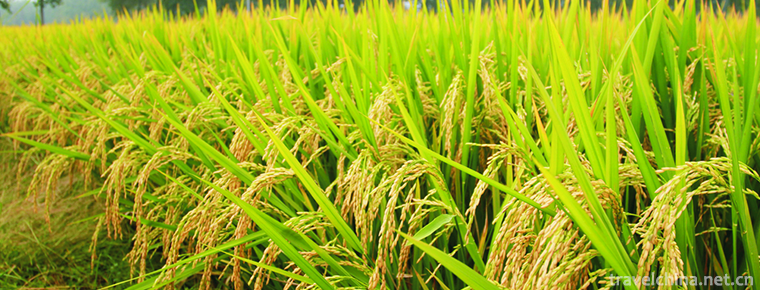
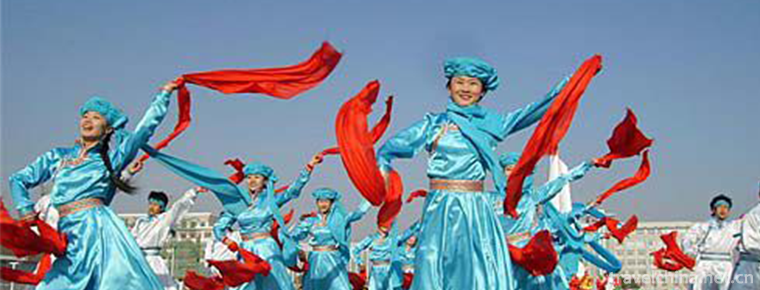
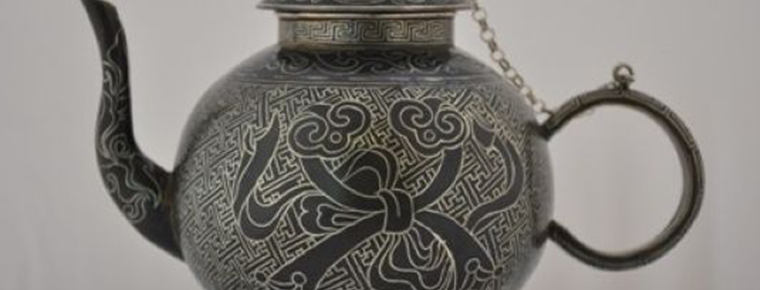
0 Questions